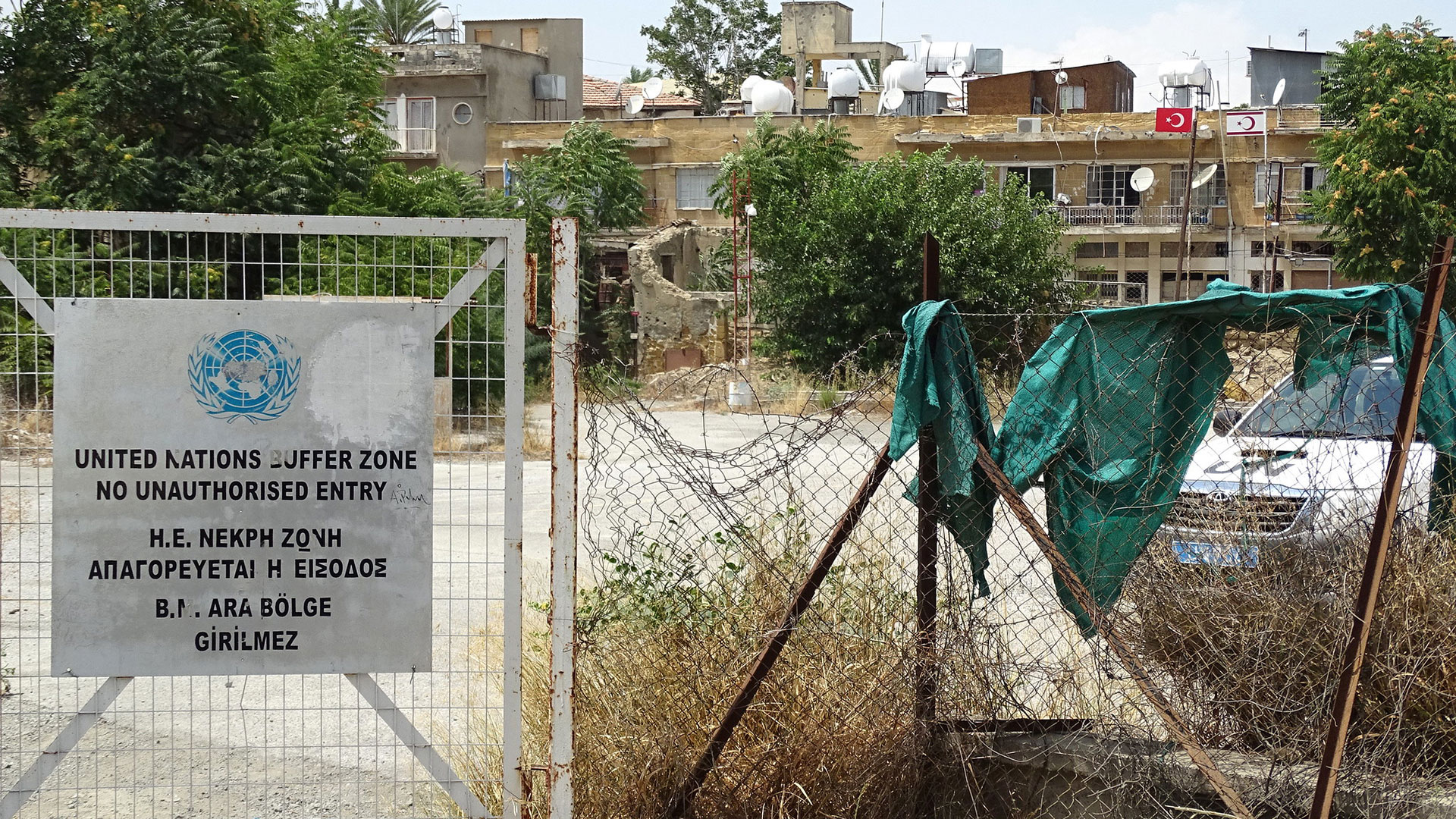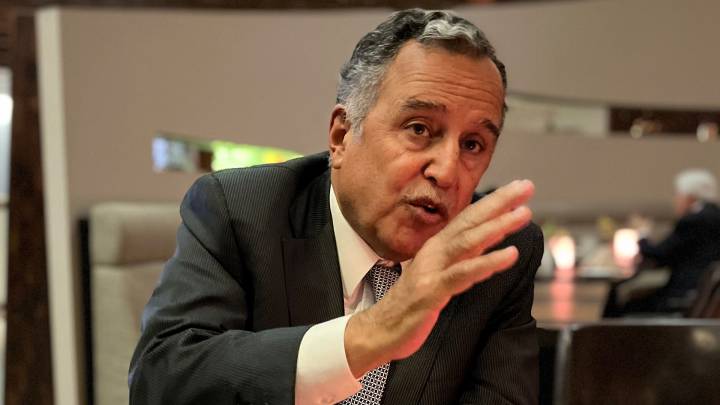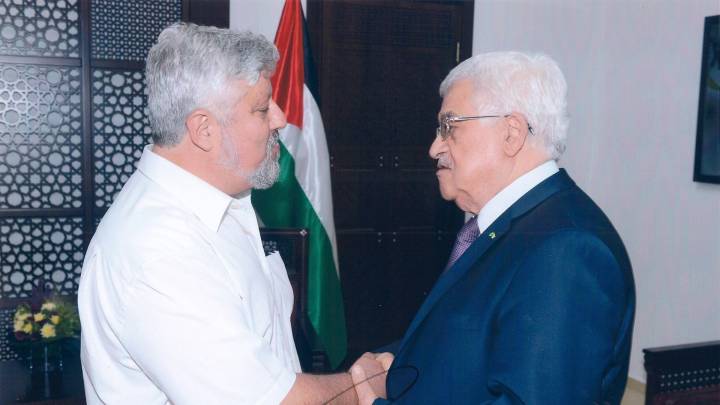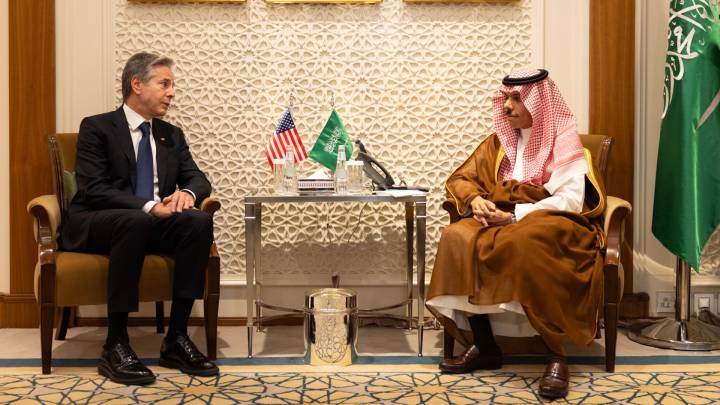After the October elections in Northern Cyprus, the vision of a federation of Greeks and Turks is off the table. This is the story of how the opportunity to unite the Mediterranean island has been missed.
The election of Ankara-backed Ersin Tatar as president of the Turkish Republic of Northern Cyprus (TRNC) has started a new era. Ersin’s victory who has campaigned on a two-state solution against former president Mustafa Akıncı, a diehard federalist, means the end of Cypriotness, at least its illusion. After the elections, Akıncı accused Ankara of meddling in favour of Tatar.
Cypriotness or Cypriotism is based on the idea that Cyprus has a unique character thus must be an entity independent from the motherlands, Greece and Turkey. “Cyprus is neither Greek nor Turkish, and it belongs to the Cypriots.” It focuses not on ethnicity but unity. Generally, its supporters are left-leaning intellectuals from both communities. Most of them favour a federal solution, some groups advocate a unitary state, one Cypriot nation under one flag.
Most Cypriots, however, perceive Cypriotness as an illusion, a fabricated identity without historical or social background. According to both Greek and Turkish nationalists, there is no Cypriot nation. It is at best a geographic identity. They label it as a deceit and a foreign ploy. Although Greek Cypriot politicians occasionally adopt Cypriotness, mostly rhetorically, the concept does not enjoy widespread support within the Greek Cypriot community.
Cypriotness, in contrast, is increasingly popular especially among the young Turkish Cypriots regard the rising numbers of immigrants from Turkey as well as the growing influence of Ankara as a threat to their unique secular Cypriot culture.
Akıncı was the last hope for the unification of the island which was divided in 1974 between Turkish and Greek Cypriots with the intervention of Turkey after a coup d'état orchestrated by the radicals aiming to unite the island with Greece. He was one of the few politicians who actually believe the existence of Cypriotness and seek a true federation to unite the two Cypriot communities. Most of his Greek and Turkish counterparts on the other hand, never really wanted a federation.
When Akıncı was elected in April 2015 with the 60.6 per cent of the vote, his success at the ballot box was hailed as a sign that Turkish Cypriots were still supporting reunification. The rejection of the UN-sponsored Annan Plan based on a federal solution in 2004 by almost two-thirds of Greek Cypriot voters had been a huge blow to Turkish Cypriots who had voted in favour by up to 65 per cent.
While the Greek Cypriots became a member state of the EU anyway, only 6 days after they had rejected unification, the Turkish side was left in the cold, a statelet only recognized by Turkey and isolated from the rest of the world. Yet a new era was about to begin with Akıncı.
It started like a fairy tale
Akıncı’s counterpart Nicolis Anastasiades, the president of the internationally recognized Cyprus Republic, was the only Greek Cypriot leader who supported the Annan Plan. They were both born in the southern city of Limassol. “Mr. Anastasiades and I are of the same generation… If we can’t solve this now, then the next generations, who lack memories of living together with the other community, could be tempted to explore other options and ‘permanent divorce’ could be on the table,” Akıncı said after his victory.
Moreover, he warned that this opening could be the last opportunity for a federal solution. Akıncı, an architect by profession, had gained international acclaim during his tenure as the mayor of Nicosia’s Turkish Municipality from 1976 to 1990. He successfully solved the city’s sewage problem by working hand in hand with his Greek counterpart.
Akıncı and Anastasiades immediately started intercommunal talks in May 2015 under the UN’s patronage building upon a close personal relationship. While the talks were progressing rapidly, Cypriots were seeing them on both sides of the Green Line – the buffer zone between the two communities – while having coffee, taking a walk or watching a theatre play. They appeared on TV together to send a holiday message in Turkish and Greek.
Intensive talks were going on while many committees were getting together to work on confidence-building measures. The region around the Green Line was brimming with joint meetings and events as a manifestation of Cypriotness.
Akıncı was hopeful about the future of the talks. In March 2016, he said “in order to solve this problem, we don’t need years, we need months. Definitely, if we continue — and there is an if here — with this determination, with this pace, with this political will, within months we can conclude an agreement.” That statement mirrored the general expectations. Foreign dignitaries were coming and going to the island to support the talks, real excitement was in the air.
In June 2016, Akıncı said the negotiations were almost completed and might be finalized at the next meeting.
Akıncı’s nightmares came true
In July 2016 however, he warned, “We should work harder because a new dynamic might emerge in 2017 which may jeopardize the settlement efforts.” He was mentioning the beginning of Anastasiades’ campaign for re-election in 2018, drilling for natural gas off the southern coast in early 2017, even though Turkish Cypriots had argued exploration shouldn’t start until the conclusion of a joint resolution, and the change of leadership in the U.S. and at the U.N. He was right about his concerns.
In July, the Crans Montana talks in Switzerland – a summit comprising Greek and Turkish Cypriots, the 3 guarantor states according to 1960 Guarantee Agreement (Turkey, Greece, UK) under the patronage of the UN and EU – collapsed and never were resumed.
Since the 1977 and 1979 Summit Agreements, negotiations on Cyprus had been conducted by the UN on the premise of a federal state based on a bi-communal and bi-zonal federation arrangement (BBF) guaranteeing political equality. Yet neither side actually ever accepted this model, as UN Secretary-General Antonio Guterres puts it: “It is well-known that Greek and Turkish Cypriots have been at odds, with Greek Cypriots mainly supporting a unitary state and Turkish Cypriots favouring two separate, internationally recognized states. But there remains a need for determination to seek common ground through mutual accommodation.” This did not happen.
At the Crans Montana talks, Akıncı went beyond the call of duty, according to his critics, to reach an agreement based on BBF. He was even accused of treachery because of his far-reaching concessions to the Greek side. Nevertheless, Anastasiades who at that time sought closer relations with the anti-federation right-wing parties to help his re-election bid, blocked his every effort.
According to Turkish Foreign Minister Mevlut Cavusoglu, during the talks, he privately suggested discussing a two-state solution after the elections by saying that a federation would not work since the Greek Cypriots do not want to share power with the Turkish Cypriots. After his election victory, when they met in New York, he allegedly put forward a confederation solution. Anastasiades rejected these allegations.
“From the Greek Cypriot point of view, conceding political equality to the Turkish Cypriots means giving power away… The reality is that no Greek Cypriot leader will ever be able to get their electorate behind a deal. The status quo for the south is simply too comfortable,” Former British Foreign Secretary Jack Straw said in 2017.
According to Costas Constantinou, a Greek Cypriot scholar, the Greek side could never accept the fact that equal status was given to the Turkish Cypriots by the founding 1960 Guarantee Agreement of the Cyprus Republic when they consisted of only 18 per cent of the population. Seeing it as a colonial injustice, they revised the constitution and stripped the Turkish Cypriots of their communal rights, which caused the eruption of interethnic violence. The Turkish Cypriots were excluded from the decision-making process and pushed into enclaves in 1963 until 1974.
After Crans Montana, despite one-to-one contacts, intercommunal talks did not resume. At one point, Akıncı was sidelined by Ankara and the Greek Cypriots who started to talk directly with each other. Akıncı warned that even though he was not prejudiced against those talks, they must be reciprocal, yet Athens was not talking with him.
According to an eyewitness account in 2018, Cavusoglu said to Akıncı that they should discuss a two-state solution and confederation. ”I was elected to discuss a federation” Akıncı replied, “I can’t tell my voters that a federation is not possible, I would have to resign.”
A very disillusioned Akıncı reacted to Anastasiades in 2019: “We have a leader who says different things to different people. When he sees fit, he talks about a two-state solution, some other time he pronounces confederation, in Cyprus, he says ‘loose federation’, when he meets me, he says ‘no, what I meant is a decentralized federation.” He also accused Anastasiades of rejecting the issues that they had agreed on.
During the negotiations, Akıncı reportedly made extensive concessions but insisted on equal political rights, since that was the sine qua non of Cypriotness. Nonetheless, Akıncı started his re-election campaign in February 2020. He was still insisting that the only possible solution was reunification under a federal roof, otherwise “the north would grow increasingly dependent on Ankara and could end up being swallowed up, as a de facto Turkish province.”




